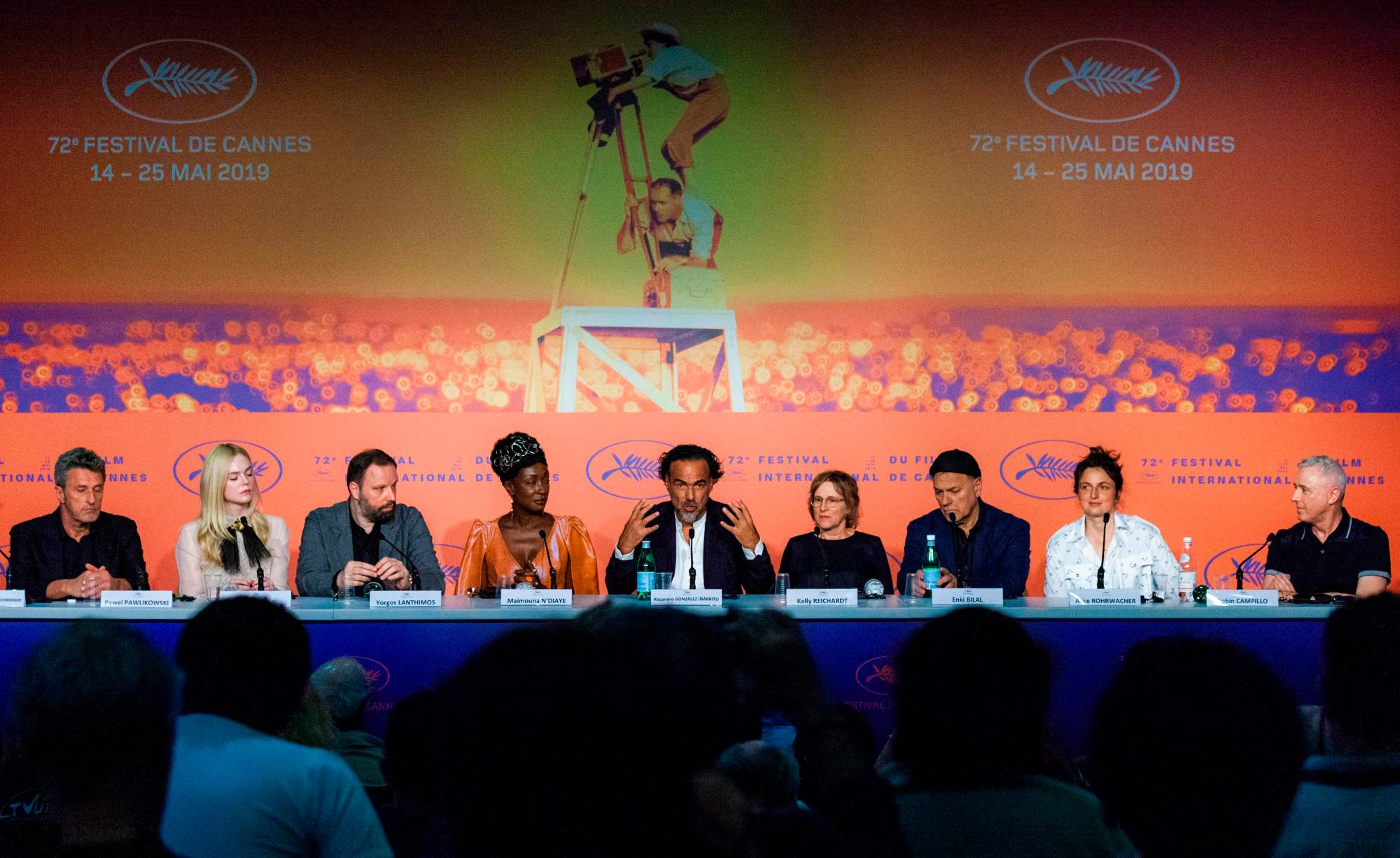
- Festivals
Cannes 2019: The Jury Discusses the Future of Cinema
Things finally got underway on the Croisette with the customary Jury press conference in the Palais du Cinema. Loudly announced by Thierry Fremeaux channeling his best Sergeant at Arms, the “Grand Jury of the 72nd Cannes Film Festival” filed into the press room to the usual lightstorm of camera flashes. The group, four women and four men with the considerable task of picking the festival winners were led by jury president Alejandro González Iñárritu, a three-time Cannes winner who bowed at the festival with Amores Perros, a Critics Week Grand Prize Winner and last won the Palme d’Or in 2010 with Biutiful. The Mexican helmer also took the Palme in 2006 with Babel, a film which featured a seven-year-old Elle Fanning as the daughter of Brad Pitt and Cate Blanchett. As fate would have it that child prodigy now sits alongside on this very same festival jury – a likely record for youth by a sitting member.
The other members of this year’s panel are Yugoslav-born comic strip author Enki Bilal, Italian director Alice Rohrwacher (here last year with Happy as Lazzaro), Greek standby and multiple Palme winner Yorgos Lanthimos (The Favourite), French director, Polish author Pawel Pawlikowski (Cold War), Senegalese actress Maimouna N’Diaye, French director Robin Campillo (120 Beats Per Minute) and American director Kelly Reichardt, who quipped this was the first time she did not seek to get out of jury duty.
Striking a tone of appropriate solemnity Iñárritu professed being honored to head the jury and representing such a prestigious and varied group: “Together we will figure out what provokes us, comforts and upsets us most.” “We will be moved and shaken in next 10 days,” he added. “And then (try to) figure out what stays with us. It will be very intense hard and passionate but we will be devoted to it.”
After dispensing with obligatory formalities it did not take long for Iñárritu to wade into some a more contentious subject, the one that now seems to hover permanently over the festival. “The rich lands of cinema and cultures is very healthy, said the Iñárritu. “What is at stake now is how to experience cinema. (And) It is made to be experienced. I have nothing against phones but it must be seen large.” The director used the analogy of listening to Beethoven’s music on a car stereo – it can be pleasurable “but would be disastrous if there were no more symphonic orchestras to experience live.” The polemic was obviously directed at streaming giant and recent festival nemesis Netflix. “France is the exception that protects that,” continued Iñárritu, “but I wonder how many of the films we will see here be distributed in the world. Netflix has been doing a great job fostering movies on TV but why not give the choice?”
As first Mexican jury president, it was perhaps inevitable that talk would soon turn to the controversy on the US Mexico border. Iñárritu said that his work speaks best about his feelings on the matter, citing Carne y Arena, his 2017 VR experience which immersed viewers in the terrifying POV experience of an illegal border crossing. “It is wrong, cruel and dangerous (to target) the world’s poorest and most vulnerable people, those who disappear in the desert and in the sea.” He denounced those who “govern with anger and hate and inventing a fiction.” “Ignorance makes it easy to manipulate. (And) without cinema, we cannot experience the ‘otherness’ of others.”
“I hope we can stop this thing that takes us to 1939,” Iñárritu concluded with a dire warning about the current wave of populist xenophobia sweeping the world. “We know how this story ends. It happened once when civilization went from Greeks to the Middle Ages. That is what mental isolation can bring, every tweet is a brick in that wall.”
And with that, the stage was set for another Cannes Film Festival.

